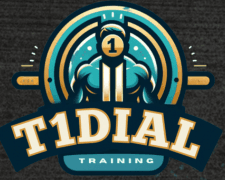ARTICLES
Expert advice on fitness, nutrition, and balancing a healthy lifestyle with the demands of parenting

Nutrition
Food Talk: How to Talk About Health Without Shaming?
Oct 30, 2025
As busy parents, we're constantly navigating conversations about food, health, and body image with our children. But here's the challenge: How do we promote healthy habits without accidentally creating shame, guilt, or unhealthy relationships with food? The words we choose matter more than we might realize, and they can either empower our kids or plant seeds of doubt that follow them into adulthood.
The Language That Hurts Without Us Knowing
We've all heard it – and maybe even said it ourselves:
"That's bad for you"
"You've had enough treats today"
"Clean your plate or no dessert"
"You need to burn off those calories"
"Mommy can't eat that because she's trying to be good"
These seemingly innocent comments can create a moral framework around food that leads to guilt, restriction, and eventually, rebellion or disordered eating patterns.
Shifting to Shame-Free Food Conversations
Replace Judgment with Function
Instead of labeling foods as "good" or "bad," talk about what different foods do for our bodies:
Old way: "Candy is bad for you"
New way: "Candy gives us quick energy, but it doesn't help our muscles grow strong like protein does"
Focus on Feelings, Not Rules
Old way: "You can't have more ice cream"
New way: "How does your tummy feel? Sometimes when we eat too much of something sweet, our bodies tell us they've had enough"
Normalize All Foods
Just like the D.I.R.T.Y CUT Method teaches us that we can enjoy our favorite foods guilt-free while still reaching our goals, we can teach our children that all foods have a place in a balanced life. No food needs to be completely off-limits, but we can help kids understand timing, portions, and listening to their bodies.
Practical Scripts for Common Situations
When They Want Seconds of Dessert:
"Let's pause for a moment and check in with our bodies. Are you still hungry, or are you eating because it tastes really good? Both are okay sometimes!"
When They Refuse Vegetables:
"It's okay if you don't want to eat those right now. Your taste buds are still learning about different flavors. Would you like to help me prepare them differently next time?"
When They Ask Why You're Not Eating Something:
"I'm choosing foods that make my body feel strong and energized today. Everyone's body needs different things at different times."
When They Comment on Body Size:
"Bodies come in all different shapes and sizes, and they're all amazing! What matters most is that our bodies are healthy and can do all the things we love to do."
Teaching the Language of Body Awareness
One of the most powerful tools we can give our children is the ability to tune into their own bodies. This creates internal awareness rather than external rules:
"What does hungry feel like in your body?"
"How do you feel after eating that?"
"What foods make you feel energized?"
"When does your body tell you it's had enough?"
Model What You Want to See
Your relationship with food speaks louder than your words. When you demonstrate that:
You can enjoy treats without guilt
You eat when hungry and stop when satisfied
You choose nourishing foods because they make you feel good
You don't punish yourself with exercise after eating
Your children learn that food is fuel, pleasure, and connection – not something to fear or fight.
The Ripple Effect of Positive Food Talk
When we shift our language around food and health, we're not just changing dinner table conversations. We're:
Building confident eaters who trust their bodies
Creating adults who have healthy relationships with food
Fostering body acceptance and self-compassion
Teaching emotional regulation skills
Breaking generational cycles of food shame
Creating Your Family's Food Philosophy
Take some time to think about what you want your family's relationship with food to look like. Consider questions like:
What food memories do you want your children to have?
How do you want them to feel about their bodies?
What values do you want to pass down about nourishment and self-care?
How can mealtimes become moments of connection rather than conflict?
Moving Forward with Intention
Changing how we talk about food and health isn't about perfection – it's about awareness and intention. Start small:
Listen to your current food language
Pause before making food-related comments
Reframe judgment-based statements into curiosity or function-based ones
Model the relationship with food you want your kids to have
Be patient with yourself and your children as you all learn new patterns
Remember, just like sustainable fitness habits, changing our food talk is a journey, not a destination. Every conversation is an opportunity to build your child's confidence, body awareness, and healthy relationship with nourishment.
The goal isn't to raise children who never enjoy treats or who obsess over every bite. The goal is to raise children who see food as one of life's pleasures – something that nourishes their bodies, brings families together, and can be enjoyed without guilt or shame.
Your words have the power to shape not just what your children eat, but how they feel about themselves. Choose them with the same care you'd choose the foods that fuel their growing bodies.
ARTICLES





